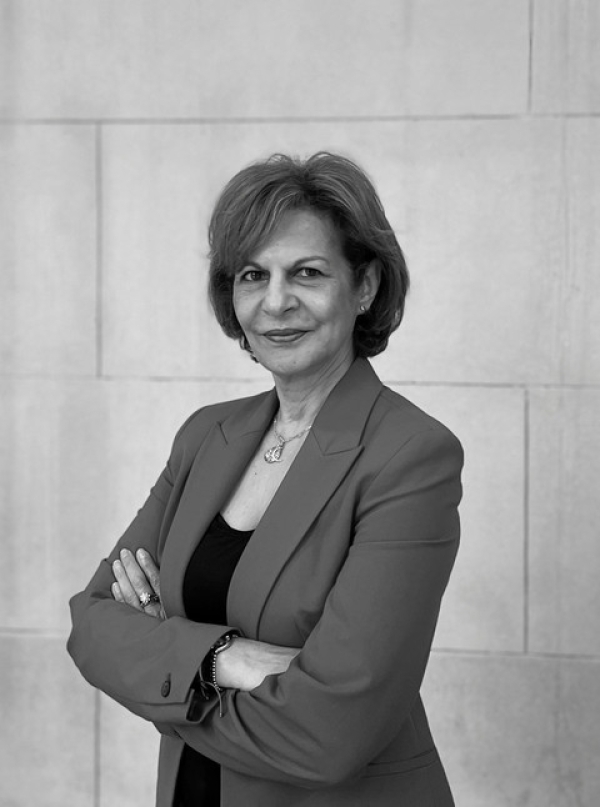Don’t worry, be happy: EU can thrive in a multipolar world
Oh, the angst and the handwringing as the ‘West’ finally discovers that it’s a topsy turvy, unpredictable multi-polar world — and that it’s time to stop giving orders and start courting the ‘rest’.
For some in Washington and in EU capitals, just saying Global South was verboten until only a year ago.
-
Many in the West may still prefer life in a unipolar set-up but there is really no option: If the EU is serious about becoming a global actor, not merely a regional one, it must embrace the future
That’s when the Global South’s mostly hands-off response to Russia’s aggression against Ukraine woke up some very complacent Western policymakers to the fact that the world has changed.
The narrative now is all about how clueless African, Asian and Latin American leaders can still be brought back to the right path — and out of China’s embrace — with the right amount of tough pressure and sweet persuasion. Perhaps even with just better communication.
Yes, the Global South is not annoyed by simplistic binary pronouncements such as Western democracies are good, autocracies are bad or by the fact the war in Ukraine is having a huge negative economic impact in many developing countries.
It’s just that those who have the challenging task of governance in developing countries (not just watching and giving lessons from outside) just don’t get it.
If only. As those now waking up from their slumber are discovering such one-sided, reductive and simple single narratives may be comfortable and self-soothing — but they are wrong.
And building policies based on an alternative reality is a hazardous business, not least because of the dodgy credentials of the democracies invited to US President Joe Biden’s recent virtual democracy summit.
It is a complex, mix-and-match world and has been for several years. The US still has a unique capacity to project military power across the globe and has command also of most multilateral agencies.
American soft power is unmatched and potent. Yet as former US Treasury chief Lawrence Summers has warned the US is also in a "lonely" place.
Instead of looking to America, many Global South countries are picking and choosing among an array of partners, including China. Most of them don’t like to talk about permanent "alliances".
India, Japan, Saudi Arabia
India may be on the West’s side when it comes to bashing China — but it certainly is not embracing US and EU demands that it stop buying oil from Russia or sanction Moscow.
Japan is trying to keep its relations with China on a stable footing, despite developing closer links with the US, Europe and Nato.
Arch-adversaries Saudi Arabia and Iran have signed on to a Chinese-brokered diplomatic deal even though Riyadh isn’t giving up its long-standing US ties. Israel is close to the US but also increasingly close to China.
The greenback reigns supreme but many states are moving away from the US dollar as the international reserve currency.
Certainly, China and Russia are using the moment to step up their own outreach in Asia, Africa and Latin America. Certainly also, wars and strife as well as poor governance and human rights violations remain the mark of too many countries of the Global South.
Whose ‘rules-based international order’?
Governments which violate the UN charter must be taken to task. But pressure to safeguard a "rules-based international order" is pointless unless everyone — including the US — is held to the same standards.
In Washington, policymakers may still believe that if you bury your head in the sand, the dangerous moment will pass.
Once peace comes back to Europe, and China is slapped with all kinds of restrictions and the wider Global South realises the folly of its ways, the world will snap back to the way it was.
That’s the kind of thinking behind AUKUS, the tough-guy military pact between Australia, UK and the US which created such an EU-wide ruckus in 2021 and which is now the subject of heated debate in Australia.
That’s also the thinking among too many Western reporters, think-tankers and academics who just can’t get their head around the complexities of this strange new world.
Hence the outdated references to "swing states", "middle powers" and non-alignment as well as the parroting of allegations that Global South leaders are really a bunch of agency-less fools and wierdos who are falling into debt traps and buying autocratic narratives.
Insulting countries which have the rare earths and other raw materials that are badly needed by global industries is a tad self-defeating.
Ironically, despite the naysayers who would prefer Europe to keep walking in America’s large shadow, the EU is rather well positioned to adapt and adjust to the global transformations.
The emerging multipolar world is unpredictable, unstable and fractious.
However, as a collection of disparate, diverse and often squabbling states, the EU is well placed to deal with complexity and knows a thing or two about the art of compromise and negotiation.
Despite attempts at speaking the "language of power", it is the EU’s soft power which is still appreciated across the world. These assets — trade, diplomacy, development assistance, security cooperation, green tech — can and should be used more effectively than they are at the moment.
Many in the West may still prefer life in a unipolar set-up but there is really no option: If the EU is serious about becoming a global actor, not merely a regional one, it must embrace the future.
To misquote Josep Borrell, it is time to move from the tidy, well-managed garden to the exciting jungle.

